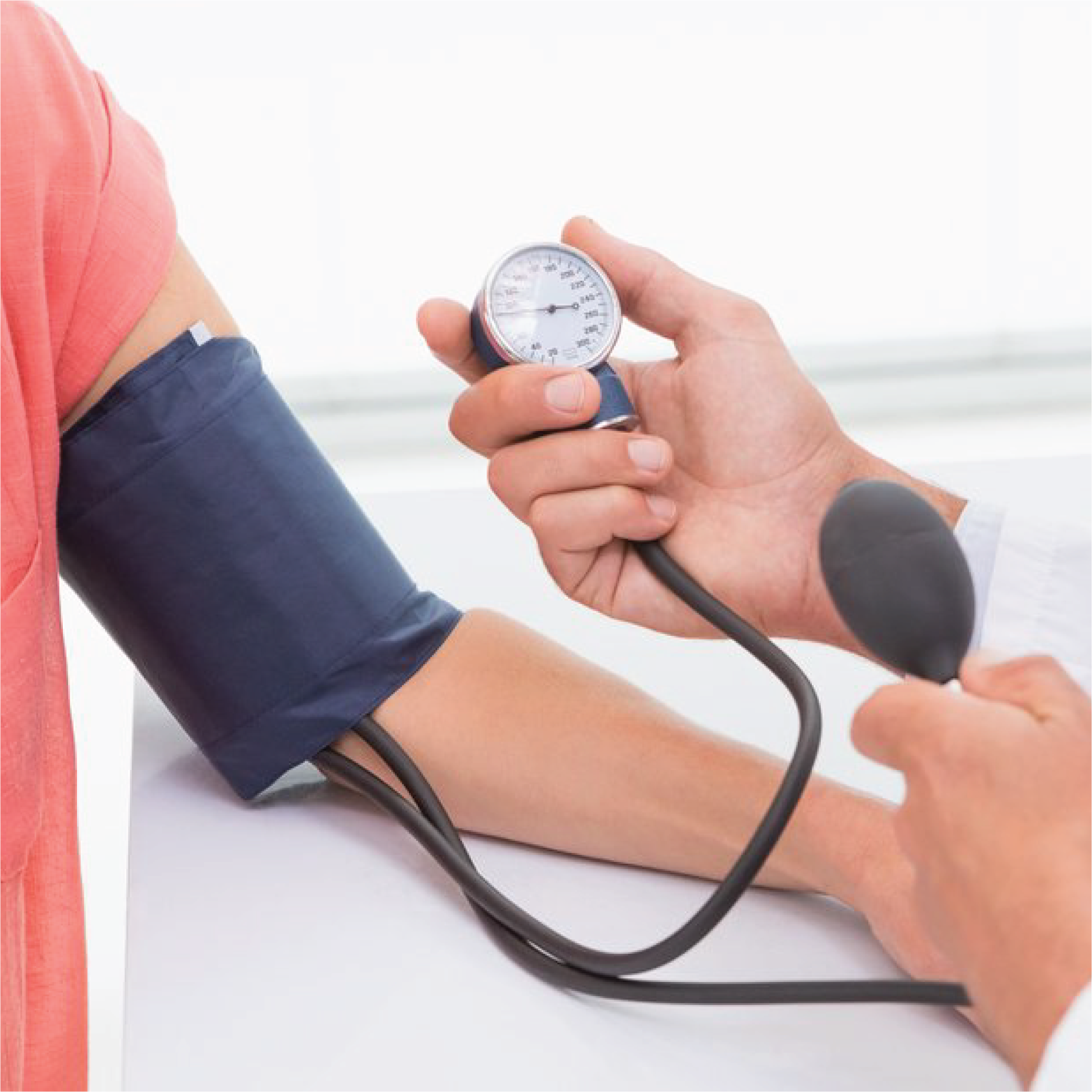Identify micronutrient deficiencies and toxicities that affect heart function. Measures the level of 15 vitamins, minerals, and antioxidants critical to a healthy heart.
STARTS AT ₱18,200.00
-

10 to 12 hours fasting
-

3 days prior: Discontinue all nonessential medications and dietary supplements. If not possible, specify the list of medications and supplements the patient is taking.
Patient preparation
- Measures the level of 15 vitamins, minerals, and antioxidants critical to a healthy heart
- Reveals imbalances of essential fatty acids (omega-3, -6 and -9) to manage overall cardiovascular risk caused by high omega-3 levels that upset omega-6 to -3 balance
- Determines CoQ10 levels for baseline and monitoring, especially for patients taking statins that inhibit the synthesis of CoQ10 for mitochondrial function
- Evaluates intracellular mineral levels (instead of just serum measurement) like magnesium, calcium, selenium and zinc
- Provides clinically actionable information that enables clinicians to develop personalized dietary and supplementation protocol for patients with heart disease
Micronutrients and Heart Health
Our heart is working constantly and requires many essential nutrients to support its function.
Nutrient imbalance—the lack or excess of some nutrients— can play a major role in the
development of cardiovascular disease (CVD).1
The Impact of Cardio Nutrient Testing
It takes more than just guesswork to address any nutrient imbalance that affects heart health. Cardio nutrient testing allows for personalized and targeted nutritional interventions, including safe use of dietary supplements to address deficiencies.
Nutritional assessment helps in the prevention and management of cardiovascular diseases.
Micronutrients Tested
- Calcium
Involved with the contraction and relaxation of heart muscles. Studies show that
calcium reduces blood pressure, a major risk factor for heart attack and stroke. It also
increases the ratio of high-density lipoprotein (HDL) cholesterol to low-density
lipoprotein (LDL) cholesterol by almost twenty percent. However, too much calcium is
also risky, as it is associated with increased risk of heart disease.7 - Cholecalciferol (Vitamin D)
Ensures the absorption and retention of calcium and phosphorus for bone building. Toxic levels of vitamin D can cause high blood calcium levels that can then lead to spikes in blood pressure, while deficiency has been associated with CVD risk factors such as hypertension and diabetes, myocardial infarction, stroke, and congestive heart failure.5
- Cobalamin (Vitamin B12) and Folate (Vitamin B9)
These micronutrients reduce homocysteine levels in the blood and aid in the proper
function of the cardiovascular system. Folate, along with other B vitamins, helps breakdown homocysteine, an amino acid that may damage the inner walls of arteries. Such damage can boost the risk of a stroke or heart attack.4 - Essential Fatty Acids
(omega-3, -6, -9, and saturated fatty acids), at the right balance, may reduce inflammation,
prevent the formation of clots, and aid in the regulation of blood pressure and
cholesterol levels. An ideal 1:1 ratio of omega-3 and -6 promotes optimal heart health.2 - Iron Ferritin
Deficiency is particularly common in the elderly and patients with chronic disease.
Deficiency contributes to development of coronary artery disease, heart failure, and
pulmonary hypertension. An excess is also detrimental to those with cardiovascular
illnesses—caution should be exercised when consuming iron-rich supplements and food.10 - Magnesium
Helps lower general cholesterol levels while raising high-density lipoprotein (HDL) or
good cholesterol while reducing the risk of dysrhythmia and severity of angina. Excess
magnesium can result in irregular heartbeat and low blood pressure. Adequate levels
of this vitamin aid in the reduction of inflammation and improve insulin sensitivity,
which both reduce the risk of heart disease.6 - Selenium
an antioxidant that fights free radicals and also reduces low-density lipoprotein
(LDL) or bad cholesterol in the body.11 - Sodium
Plays a significant role in blood pressure regulation. Deficiency in sodium, however, can
increase health risks for people with hypertension, diabetes, or chronic kidney disease.8 - Ubiquinone (CoQ10)
A deficiency can play a role in the development and worsening of heart failure. The use of
CoQ10 in heart failure suggested improved ejection fraction, stroke volume, cardiac
output, and cardiac index.3 - Zinc
A potent antioxidant that helps neutralize free radicals that accelerate aging and
contribute to chronic diseases like CVD.9
This specialty nutrient panel also tests for:
- Chromium
- Manganese
- Phylloquinone (Vitamin K)
- Potassium
Test Information
SPECIMEN: 25 ml. whole blood
RESULT TAT: 1 week
METHOD: LC-MS/MS, ICP-MS, HPLC, GC
Download Test Brochure
Prepare for a Test
Find a hospital
1 Micronutrients in health and disease. www.ncbi.nlm.nih.gov/pmc/articles/PMC2585731
2 Saremi A, Arora R The utility of omega 3 fatty acids in cardiovascular disease. Am J Ther. 2009 Sept-Oct;16(5):421-36 https://www.ncbi.nlm.nih.gov/pubmed/19092647
3 Manish M, Shrikant P, Suvarcha S. Coenzyme Q10: The Cardiac Bio-energizer in Cardiovascular Diseases. J Cardiol & Cardiovasc Ther. 2016; 1(2): 555560. DOI: 10.19080/JOCCT.2016.01.555560
https://juniperpublishers.com/jocct/JOCCT.MS.ID.555560.php
Sharma A et.al;. Coenzyme Q10 and heart failure: a State of the art review. Circ Heart faril.2016
Apr;9(4):e002639.doi:10.1161/circheartfailure.115.002639
4 Folic acid, Vitamin B12 show potential as heart disease treatment. University of California, San Francisco August 22.
Journal of American Medical Association (JAMA).
5 Gouni-Berthold et. Al. Vitamin D and cardiovascular disease Curr Vasc Pharmacol. 2009 Jul;7(3):414-22 https://www.ncbi.nlm.nih.gov/pubmed/19601865
6 Population nutrient intake goals for preventing diet-related chronic diseases.
www.who.int/nutrition/topics/5_population_nutrient/en/index10.html#diet5.
7 Reid IR. Cardiovascular effects of calcium supplements. Nutrients.2013 Jul 5;5(7):2522-9.doi:10.339/nu5072522.https://www.ncbi.nlm.nih.gov/pubmed/23857224/
8 Institute of Medicine. sodium intake in populations: assessment of evidence. 2013. Washington, DC: National Academies Press, May 2013
9 Zinc supply affects cardiac health.www.sciencedaily.com/releases/2017/04/170418094238.htm
10 Relation between body iron status and cardiovascular risk factors in patients with cardiovascular disease. Int J Prev Med. 2013 Aug; 4(8): 911–916. https://www.ncbi.nlm.nih.gov/pmc/articles/PMC3775168/
Iron deficiency and cardiovascular disease. Nat Rev Cardiol. 2015 Nov;12(11):659-69.
https://www.ncbi.nlm.nih.gov/pubmed/26194551
11 Stephen Daniells. Supplements of selenium may increase levels of an antioxidant enzyme with a reported role in cardiovascular prevention http://www.nutraingredients.com/Research/Selenium-supplements-may-boost-heart-health-Study
Got questions? Contact Us or read our FAQ


